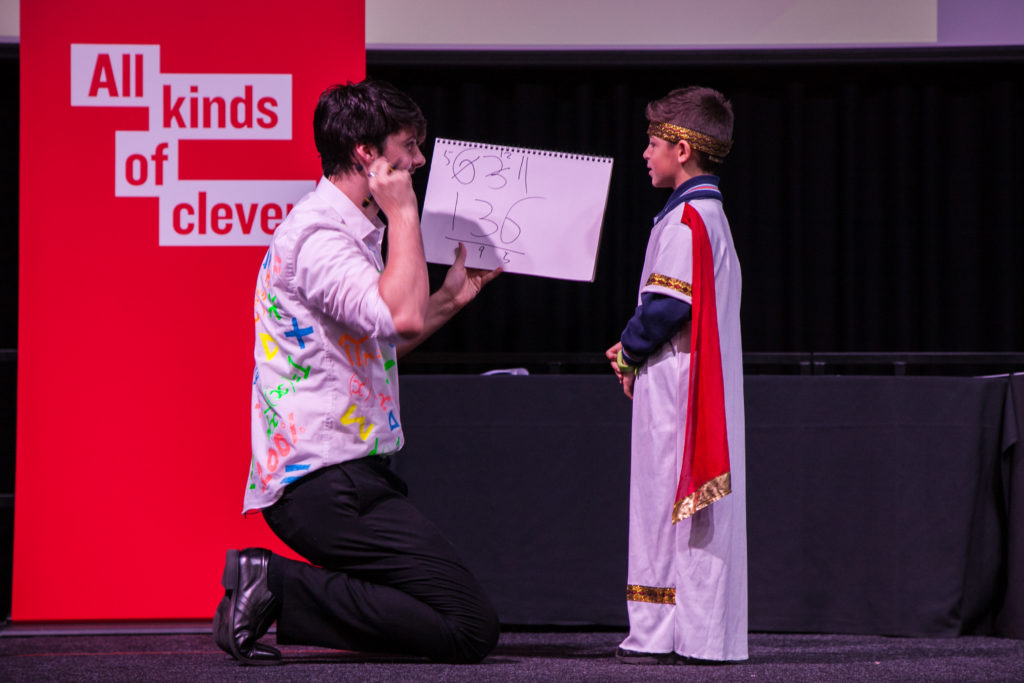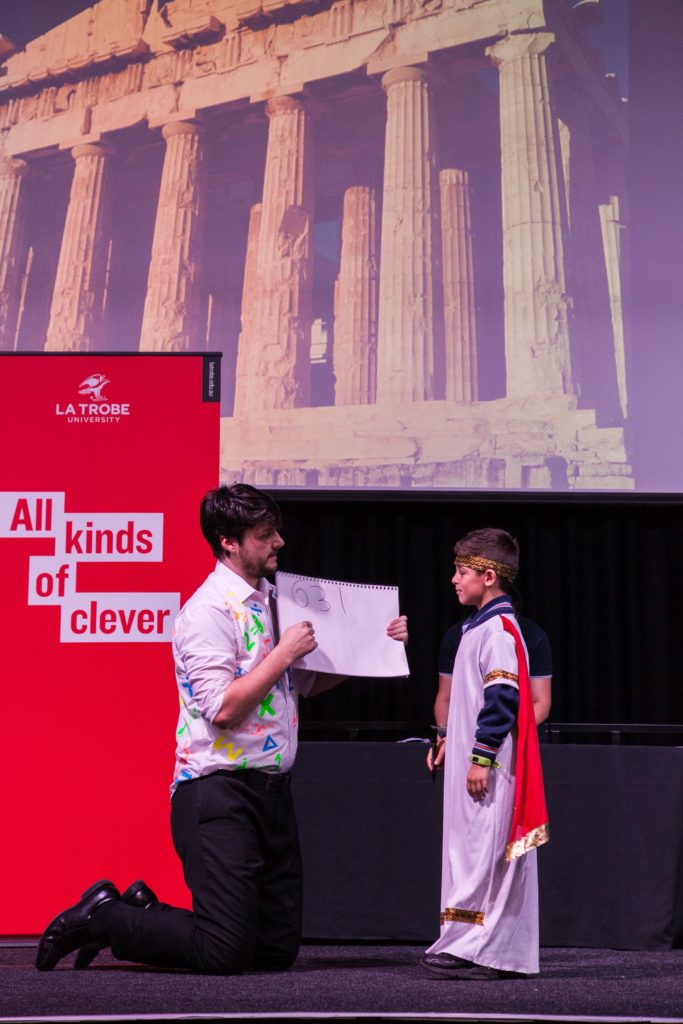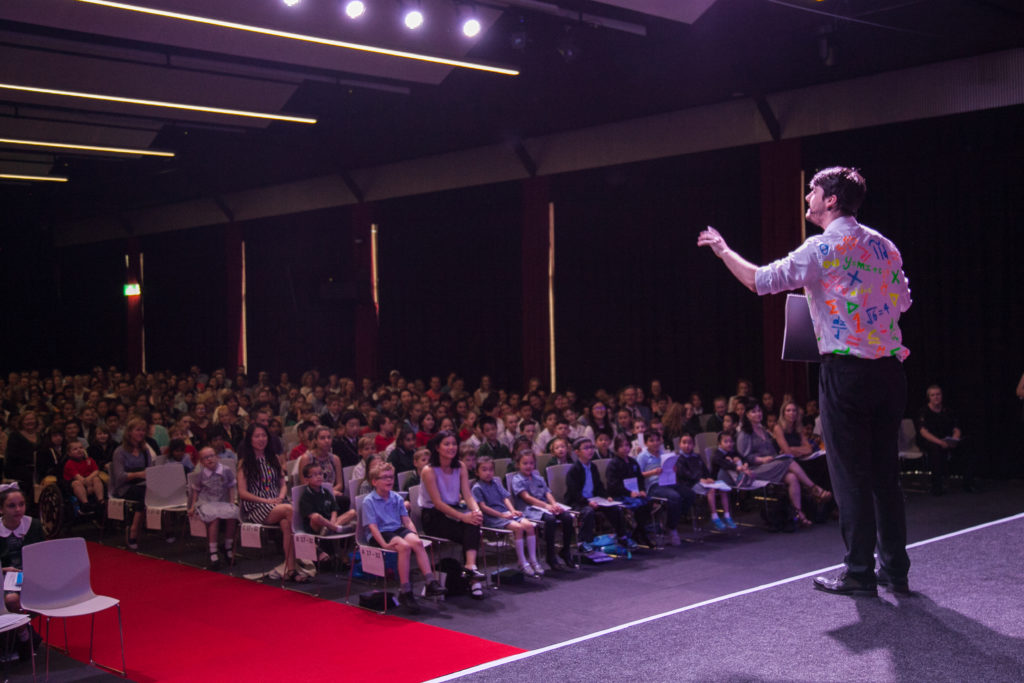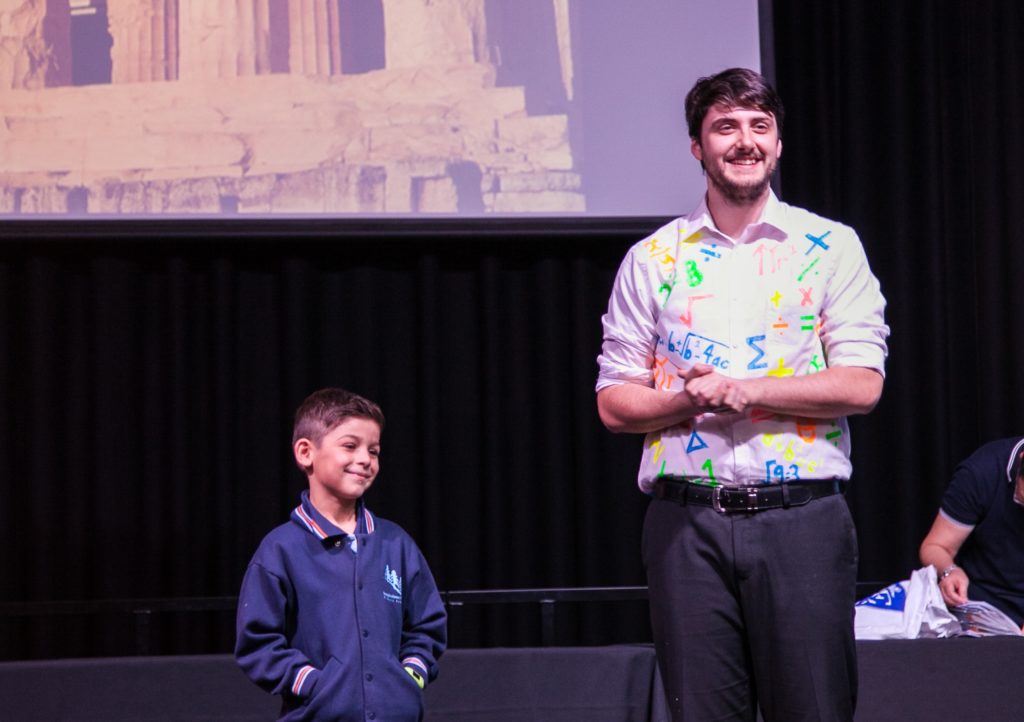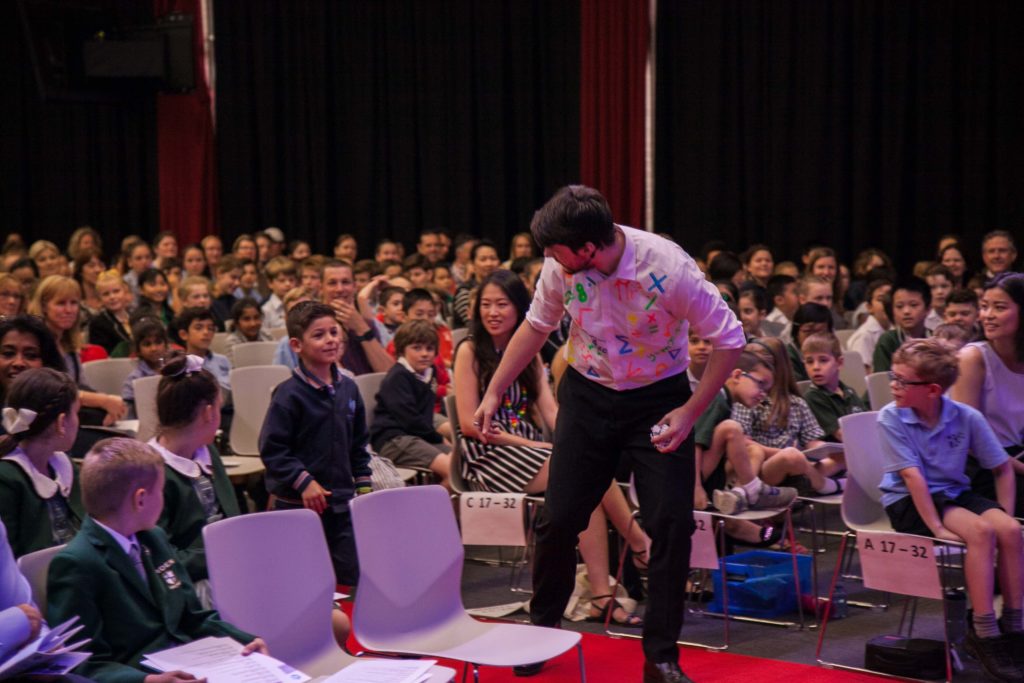A maths study skills program to help students achieve their best possible maths results.
What if knowing how to study maths was just as important as knowing what to study in maths?
What if the most important maths lesson in your student’s life didn’t actually teach the any maths – but taught them how to learn maths and empowered them with mathematical self belief?
What if all of your students believed that maths was not only for the select few, but that anyone and everyone can succeed at maths?
Having strong maths skills is a vital part of every child’s education, yet many students struggle with low levels of confidence and high levels of anxiety in mathematics.
However research shows that having positive attitude towards maths can actually boost maths achievement, independent of IQ and other contributing factors.
That’s why our How to Learn Maths program was created.
Drawing on our expertise as one of Australia’s leading providers of study skills programs, including over 30 years experience in creating maths programs and in consultation with Jo Boaler, Director of Youcubed.org and one of the world’s leading maths learning experts we have created a program that can help students to:
-
Boost their levels of confidence and self belief in maths
-
Reduce maths anxiety and negative perceptions of the the subject
-
Engage deeply with maths and find it more enjoyable
-
Build a growth mindset in maths
-
Enhance their maths study skills so they can achieve at their highest possible levels
-
Encourage students to continue with higher level maths subjects
We believe that How to Learn Maths may be the single most important lesson in a students mathematical studies as it teaches them how to study maths while at the same time boosting their levels of confidence, engagement and enjoyment in maths.
This exciting and innovative program includes the following units:
1. Maths and mindset – why your attitude to maths impacts on your success in maths
2. Building a growth mindset in maths – anyone can do maths!
3. The seven keys to maths success
-
Self belief
-
How making mistakes grows your brain
-
It’s not about speed
-
Being flexible in your maths thinking
-
Being creative and having fun in maths
-
Working in groups and talking about maths
-
Being visual in maths
4. How to take great notes in maths class
5. Applying strong study skills to maths
-
Setting maths learning goals
-
Time management in maths study
-
Efficient and effective maths learning
-
Beating procrastination in maths
-
Avoiding distraction while studying maths
6. How to conquer maths anxiety and stay calm and relaxed in maths
The Nitty Gritty:
How to Learn Maths is available in two different versions: One for Middle Years Students (Years 5-8) and one for Senior Years Students (Years 9 – 12).
How to Learn Maths is brought to you by Felstead Education, drawing on over 30 years of educational experience. We are one of Australia’s leading study skills experts, and the producers of such iconic maths productions including The Maths Show, The History of Maths, Maths and Cricket, Maths and Soccer and many more.
We are proud to have developed How to Learn Maths in consultation with Jo Boaler of Stanford University, one of the world’s leading maths education experts. She is a former President of the International Organisation for Women and Matsh Education, and the author of nine books and numerous research articles. She was named by the BBC as ‘One of the eight people whose ideas are challenging the future of Education.”
The program is delivered as a 50 – 60 minute session, designed for a full year cohort of up to approximately 150 students.
How to Learn Maths is delivered in-house at your school and comes complete with follow on resources to embed the learning.
Don’t miss this unique opportunity to give your students the self confidence and skill set they need to succeed in maths.
To find out about having How to Learn Maths at your school – contact us today!
We are proud to partner with the Mathematical Association of Victoria, the show’s principal sponsor, to provide teachers with a resource kit and lesson notes for optional follow on activities that can be built into a unit of work.
Don’t miss this unique opportunity to give your students the self belief and skill set they need to succeed in maths – contact us today!
Drawing on our expertise as one of Australia’s leading providers of study skills programs, combined with over 30 years experience in creating maths programs that bring the subject to life in unique and engaging ways (and in cooperation with Stanford…) we have created a program that can do just that and help students to:
units:
-
Why study maths?
-
Anyone can do maths – building self confidence and a growth mindset
-
The seven key skills for maths success: Self belief; A willingness to make mistakes; It’s not about speed; Being flexible in your thinking; Being creative: Talking about maths and work in groups; Being visual
-
How to take great notes in maths – a vital skill in preparation for high school
-
Mindfulness and maths – how to stay calm and focused in maths and techniques to boost self confidence and reduce match anxiety
-
Maths and Mnemonics – while it is better to understand maths than to memorise it, some helpful tools to boost your maths memory if required
-
Follow on resources and exercises
The Nitty Gritty:
How to Learn Maths is presented in-house at your school.
The presentation runs for approximately 40 – 50 minutes.
An ideal size audience is 80 – 120 students, but the seminar can be delivered to smaller groups, or to up to 200 students in an appropriate venue.
We prefer to preload our AV items onto your system, and you will need to provide a screen for them to be projected upon. A microphone may be required for larger venues.
The cost of How to Learn Maths is:
Up to 100 students: $10.00 per head (Minimum fee $830)
From 100 – 150 students: $9.00 per head
Over 150 students: $8.00 per head
A 20% discount is available to members of the Maths Association of Victoria (MAV).
Prices for MAV members are:
Up to 100 students: $8.00 per head (Minimum fee $744)
From 100 – 150 students: $7.20 per head
Over 150 students: $6.40 per head
G.S.T. is additional on all prices.
To find out more or book your presentation, contact us today!
Our new show helps students build a positive maths mindset, defeat maths anxiety, and build their confidence in maths.
Maths is a vital part of every child’s education, yet many students struggle with low levels of confidence and high levels of anxiety in mathematics.
However research shows that having a positive maths mindset can boost student performance and engagement in this vital subject.
So what if there was a great way to change your students attitude to maths, boost their enjoyment of the subject, and instil within them the self belief that everyone can do maths?
We hope that our new show – The How to be Good at Maths Show – can achieve all of this by helping students to:
-
Reduce maths anxiety and negative perceptions of the the subject
-
Boost their levels of confidence and self belief in maths
-
Engage deeply with maths and find it more enjoyable
-
Build a growth mindset in maths
-
Enhance their maths study skills so they can achieve at their highest possible levels
-
Encourage students to continue with higher level maths subjects
About the Show
This unique live theatrical performance follows the adventures of Sam, an energetic and bubbly young student who is trying to boost her grades in maths, while struggling against her lack of self confidence in maths and general apathy towards STEM subjects.
When her usual online tutor is unavailable, Sam meets the amazing Pythagoras – a 2000 year old tutor from Ancient Greece who has been helping students through the millennia deal with similar problems.
Pythagoras takes Sam on an amazing journey through the world of maths, teaching her that with the right mindset and good study skills everyone can be good at maths.
The show combines humour, live performance, storytelling and audience interaction with the latest pedagogy and research into how students learn maths to provide a unique maths incursion that can make a real positive difference to your students in maths.

